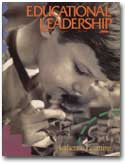The year I first learned about Brazil was the middle of the Great Depression. I was in the 4th grade in Yonkers, New York, and most of my fellow students were poor. Though teachers often went months without being paid, I remember that their caring and commitment created a bright side to our situation in the grim, red-brick building that was P.S. 4.
The mid-1930s were the high point of progressive education in the United States, and at my school we studied units, as I later came to know the term. When we studied the Colonial era, we visited Philipse Manor, the home of an early Dutch patroon. We danced the minuet and made candles. We also wrote stories, created plays, and learned our arithmetic by preparing Colonial food and building sets for our dramas.
That year we also studied Brazil and the great Amazon River, and it sparked in me a lifelong desire to go see the river, the rubber trees, and how tapioca grew. We had learned that tapioca came from manioc, a poison root that becomes edible through various preparation processes. My mother came to school and helped my teacher, Miss Monroe, cook the tapioca, something we now call parental involvement. My classmates and I constructed a native village using papier-mâché for the rubber trees and weeds for thatch-roofed houses. The richest girl in the class was the daughter of a ship captain who had been to Belém. Her father came and told us about the city, which we now label “using community resources.”
I remember that one day I looked into Miss Monroe's blue eyes and told her, “Someday I'm going to go to the Amazon, and I'm going to see everything we have talked about.” She looked at me and said without hesitation, “I know you will. ” Today we call that building a student's self-esteem.
The dream Miss Monroe nurtured so many decades ago was realized when I finally traveled the Amazon. I visited Belém, took a boat trip through the mighty delta, and saw rubber trees with diagonal gashes and small cups to gather latex. I flew over endless miles of jungle to Manaus to view the “meeting of the waters” where the coffee-colored Amazon joins the dark, almost black Rio Negro.
I've been in the magnificent Teatro do Amazonas, built by the rubber barons in 1896 and recently renovated. Patterned after La Scala in Milan and built with marble from Italy, bronze from France, and ironwork from England, it was constructed when the Amazon was Manaus's only connection to the outside world. I slept in a hammock in a native hut in a primitive village and watched the lethal manioc being turned into deliciously edible tapioca. I even caught some piranha, though my experienced guide removed them from the hook so I didn't return to the United States with part of a finger missing.
I am fortunate that my little-boy dream came true, a dream that began with one inspiring teacher. Yet I wonder today if teachers' dream-building time is being squeezed out by an overwhelming emphasis on the basics, test scores, five-part/seven-part lesson plans, and legislatively mandated evaluation procedures. Has the potential for inspiration disappeared in an educational process that often seems sanitized, mechanistic, bland, and uninteresting? I'm certainly grateful I grew up in a time when Miss Monroe could help me build my dream. Making it come true far exceeded my expectations.





